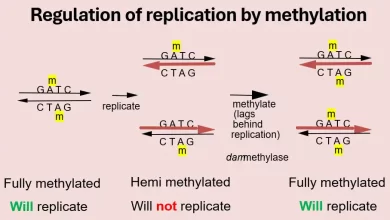The G0 phase is a resting phase in the cell cycle where cells are not actively dividing. Cells can enter the G0 phase from a cell cycle checkpoint in the G1 phase, typically in response to a deficiency of growth factors or nutrients. In this phase, the cell cycle machinery is dismantled, and cyclins and cyclin-dependent kinases disappear.
Cells in the G0 phase, also known as quiescent cells, are biologically significant. The G0 phase is a stage in the cell cycle where cells temporarily or permanently stop dividing. Certain cell types in the body enter a non-dividing state known as G0, while the majority of cells continue to progress through the cell cycle.
The significance of cells in the G0 phase can be observed in different contexts:
1-Tissue maintenance and repair: In adult organisms, specific cells, such as mature neurons, cardiac muscle cells, and skeletal muscle cells, mainly remain in the G0 phase. These cells have limited or no ability to divide. Their entry into G0 ensures their long-term survival and functionality within tissues. Certain dormant cells can be activated to divide and facilitate tissue repair in response to injury or tissue damage.
2-Cellular senescence: Cellular senescence is a state of irreversible cell cycle arrest caused by factors such as DNA damage, telomere shortening, or stress signals. Senescent cells are permanently in a state of G0 and no longer have the ability to divide. As people get older, these accumulations can contribute to age-related diseases and tissue dysfunction. Senescence acts as a protective mechanism that prevents damaged cells from multiplying and potentially becoming cancerous.
3-Cancer Treatment: G0-phase cells pose challenges in cancer treatment. Some cancer cells can enter a dormant in G0, which makes them less susceptible to conventional cancer treatments that target actively dividing cells. Dormant cancer cells can reactivate, leading to disease recurrence. Current research is focused on developing treatments that target and eliminate quiescent cancer cells.
4-Differentiation: Cells often enter the G0 phase during the differentiation process. During development, stem cells may exit the cell cycle and enter G0 to specialize into specific cell types. This allows cells to develop unique characteristics and perform specific functions that are essential for their specialized roles within tissues and organs.
Understanding the significance of cells in the G0 phase contributes to our knowledge of cell biology, tissue homeostasis, development, aging, and disease processes. The text highlights the complex regulation and adaptability of cell cycle control mechanisms in maintaining cellular function in different physiological and pathological contexts.







